Film Review: Mass (2021)
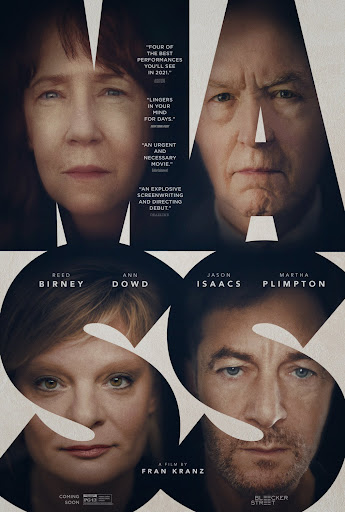

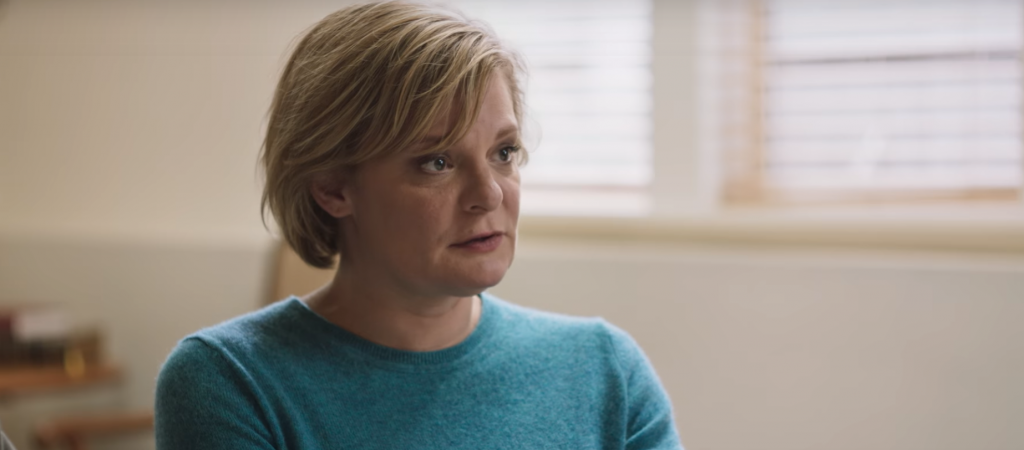
Mass is the kind of film that nobody wants to relate to, but one which far too many people will. It’s the kind of film that shouldn’t be necessary, yet is painfully so. It asks gigantic questions and it gets honest answers, but that those answers are somehow both heartwarming and terrifying at once is perhaps what makes it such a powerful, unforgettable film. A lot will be said of the actors (and rightly so), but it’s the now all too common process of “violence, outrage, inaction, forget” that might eat away at you most. Mass is difficult to watch and perhaps not easy to contextualize, but its rewards are oddly unburdening and even uplifting.
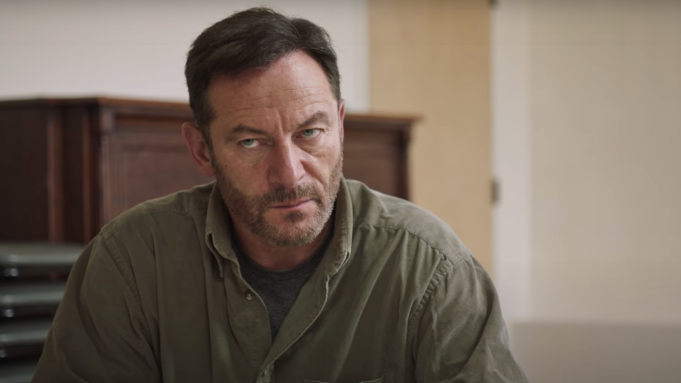
Set almost completely within the confines of a small room in a church basement, Mass dissects the lead-up, specifics, and aftermath of a school shooting that took the lives of several students. The tragedy is revisited in detail by two sets of parents, but is done so without the use of flashback or other cinematic trickery. They simply talk about it, and as they do so, each participant comes to certain realizations about themselves and each other – some expected, some not so much. It’s a remarkably powerful story that works largely because of its devastating timeliness, and director Fran Kranz’s willingness to allow its brutality to unfold without using brutal imagery of any kind.
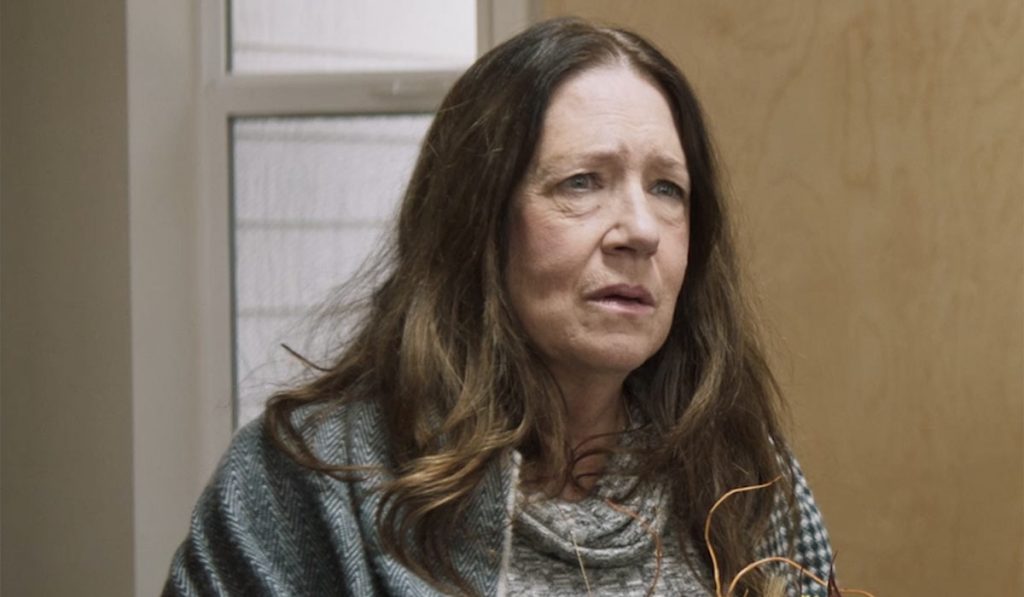
That Kranz pulls away from the visual gratuity of such an event, opting instead to relay its details through words and emotion-packed exposition, is a testament to both the director’s unwavering nerve and to the powerhouse performances of the actors charged with telling such a horrifying and psychologically taxing tale. It also places quite a bit of trust in its audience, who are forced to witness the deeply-seated anger, guilt, and loss not through crime scene photos or gory flashes of memory, but through raw emotional outpouring.
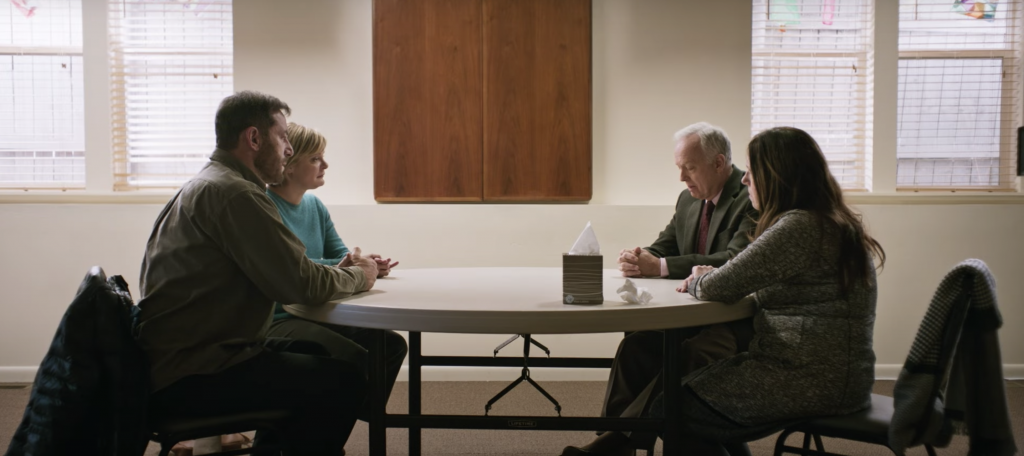
The actors in question (Martha Plimpton and Jason Isaacs as Gail and Jay, the ravaged parents of one of the victims, and Ann Dowd and Reed Birney as Linda and Richard, the parents of the shooter) are each their own force of nature. As the niceties and politeness are dispensed, Kranz’s plot opens wider with each sentence, exposing the blame and trauma seething under the surface. However, Mass is not a sentimental movie, nor is it a manipulative one. The cast does not lull us into an agenda by virtue signaling or grandstanding. Each character acts as an individual with their own honest thoughts and opinions that, from initial setting of pen to paper and all the through final delivery, never comes across as forced or melodramatic. At no point are we being sold anything other than understanding – something that Mass and its cast deliver on in more ways than one, and something I hope is found in much bigger supply as a result.
